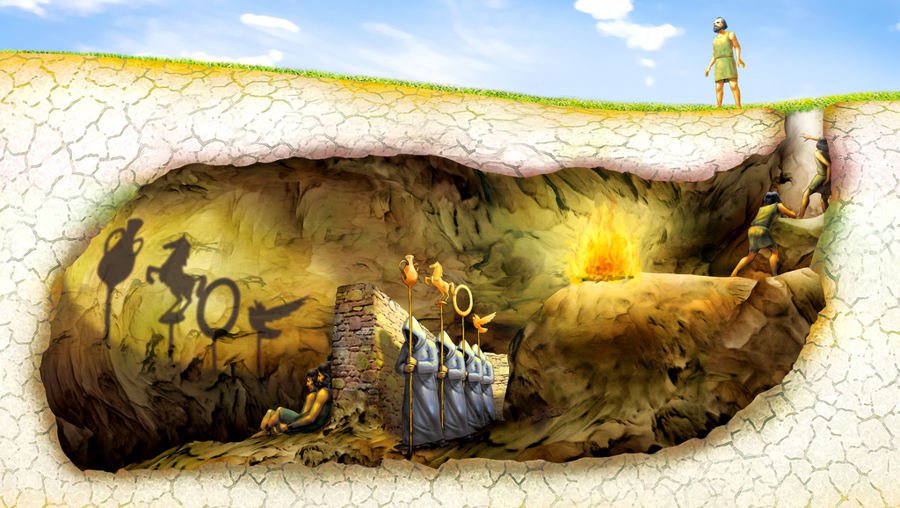How Us Arabs Use Philosophy in Our Everyday Lives Without Even Knowing
Most people assume that philosophy is quite a boring topic, and yes, I get why they would think that. But as a philosophy enthusiast, I can tell you that it really isn’t as boring as some might think. In fact, I’d like to prove that we use philosophy in our everyday lives, but we just don’t know it. Here’s how:
Plato’s Noble Lie
In politics, the Noble Lie is a myth propagated by the elite to maintain social harmony — a concept that’s originated by Plato in his book “The Republic.”
In an intellectual debate about Justice and the Ideal State — aka Utopia — Plato claims that in order to create the Ideal State, people should be divided into three classes. As for people’s acceptance to the class they are in, they should be told a ‘Noble Lie’, which is the Gods chose their classes for them; by mixing metals in their blood. Bronze for the workers, silver for the soldiers, and gold for the rulers. Does any of that sound familiar? Oh, yes it does.
The Allegory of the Cave

This allegory is a proof that cannabis existed in the fourth century and that Plato was one of its biggest fans! An immense study of the allegory of the cave could change one’s beliefs and understanding of knowledge.
The allegory tells a story of people who were born imprisoned in a cave; enchained and not able to look anywhere except to a single wall. Behind those prisoners is a fire and a pathway, where everything that passes through the pathway is projected as shadows on the prisoners’ wall. He proposed that for the prisoners, the shadows are all that they know. If one prisoner was freed and saw the true forms of these shadows and tried to explain them to his fellow prisoners they won’t understand him and treat him like a madman.
Per Plato, we are all living inside the cave, and everything we know is a mere shadow of the truth. Don’t you think that “being face fixed to walls (Or electronic devices) that presents shadows of the truth” quiet relate-able?
Solipsism
People who read about philosophy tend to be really skeptical. There is no limit to what one could doubt or question. Thus, in the quest for doubting everything, some thinkers doubted their own existence.
After Decartes reached the proposition “Cogito ergo sum” — I think, therefore I am — he answered the doubt for one’s existence. But then came the question, what if I am the only mind or mental state that exists? How can I be really sure that everything and everyone else is not just a projection of my own mind? Solipsism as an epistemological position claims that the knowledge of anything outside one’s own mind is unsure.
Good luck trying to prove that your family and loved ones aren’t just made up in your mind!
Nihilism
Existential questions like why do we exist, or what is the purpose of life can have different answers and stand points.
The doctrine of ‘Nihilism’ provides one possible answer or a stand point to these questions. Nihilism argues that life is without objective meaning or purpose.
It is often associated with extreme pessimism and a radical skepticism that condemns existence. Nihilism is most often associated with the German philosopher Friedrich Nietzsche. Nihilist comics and tweets are usually shared by students during their finals, and by employees on Tuesdays.


